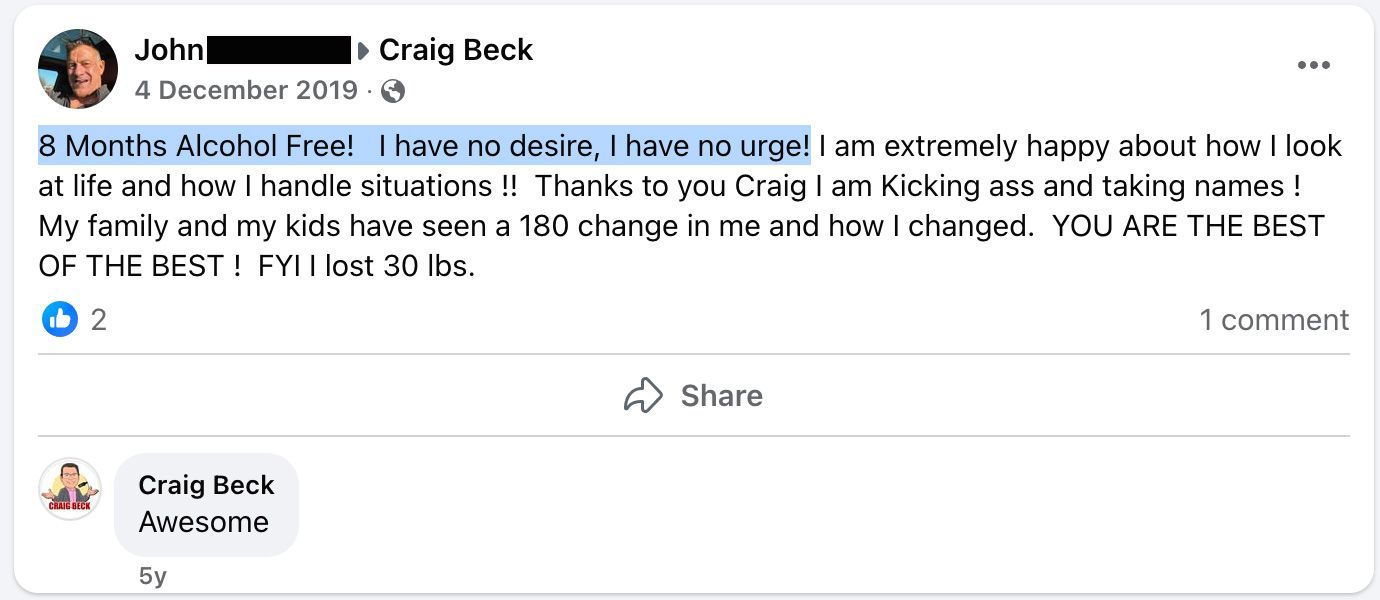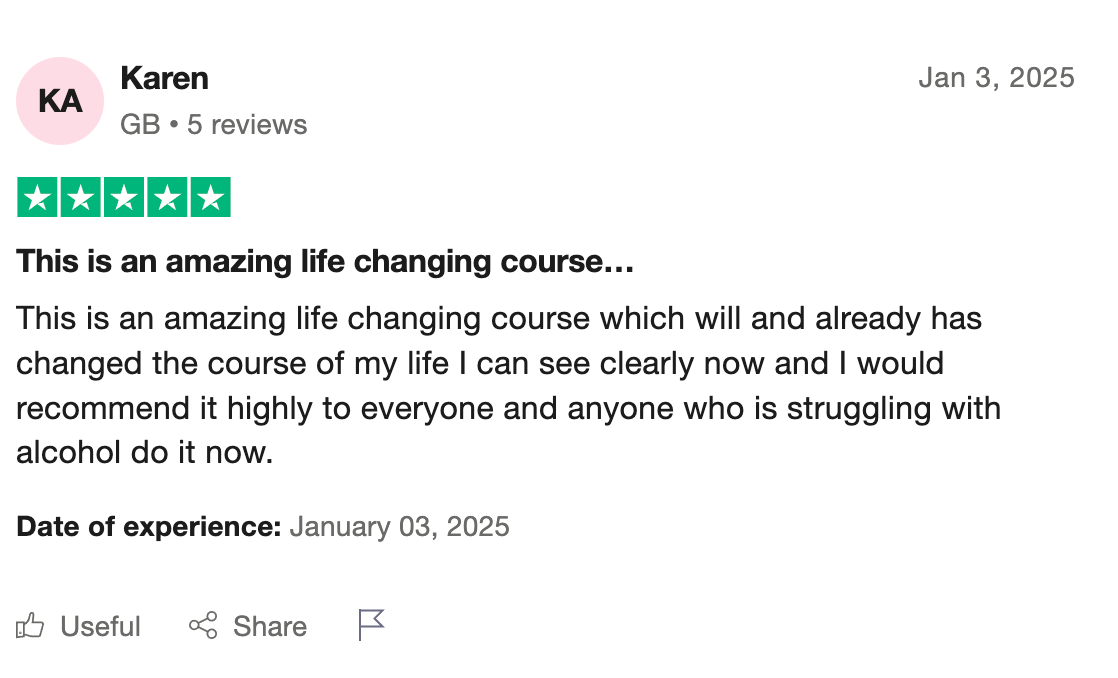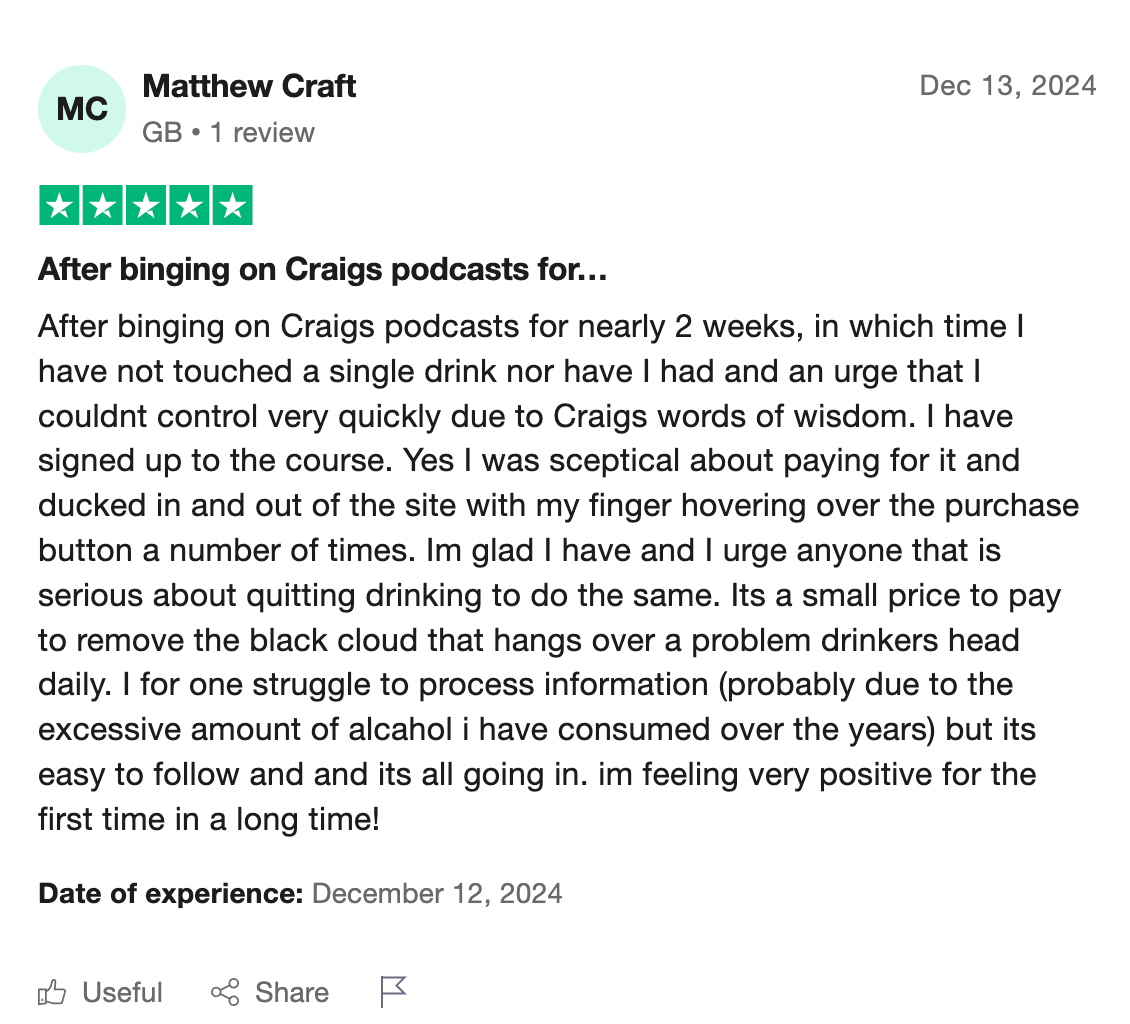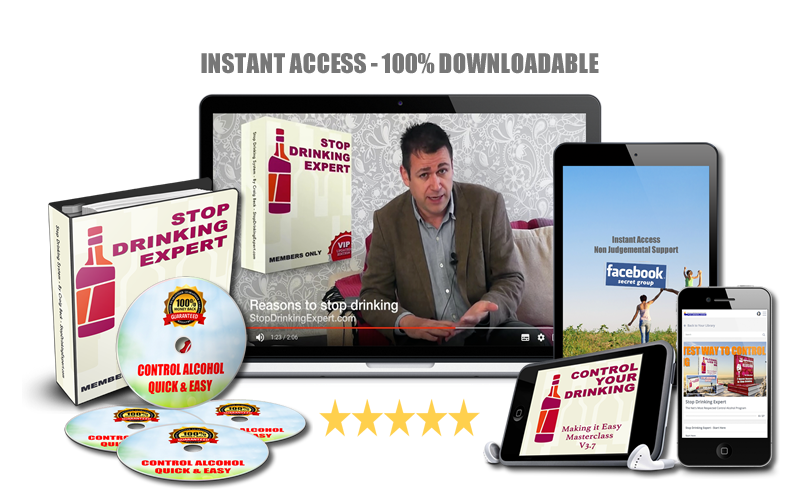Quitting Alcohol: Why Do I Keep Failing To Stay Sober?
You promise yourself every dawn that tonight will be alcohol free. Evening comes. Nerves hum. One glass becomes two and another morning of regret follows. If this loop sounds familiar the problem is not laziness or lack of resolve. Something deeper keeps tugging you back to the bottle even though clear memory tells you that alcohol robs sleep money and peace. Understanding that hidden engine is the first stride toward genuine lasting freedom.
Many readers secretly fear they possess a fatal flaw that blocks sobriety. That belief is both painful and false. Your brain is working exactly as evolution designed it to work. The reward system learns fast. Once alcohol slips into the routine the subconscious files it under survival supplies along with water and bread. Logic alone cannot overrule that code. Yet knowledge plus a better strategy can rewrite the script and help you stay sober without exhaustion.
The Willpower Myth And Why Grit Alone Breaks
Public stories often celebrate iron will as the magic key to lasting change. Reality paints a different picture. Researchers at the National Institute on Alcohol Abuse and Alcoholism followed thousands of adults who tried to quit through force alone. After one year fewer than one in ten managed to stay sober. Willpower burns out because cravings rise from the limbic system an ancient brain region that does not understand lectures. You can no more argue with it than you can persuade your pulse to stop.
Think of will as a candle. It shines brightly for a short time. Stress wind blows and the flame flickers then dies. After a hard day at work or an argument at home that fragile candle struggles to compete with a chilled bottle in the fridge. This does not label you weak. It simply shows that using a candle to light a football stadium makes no sense. A stronger lamp is required.
One stronger lamp is awareness of alcohol’s true nature. In the free bestselling book Alcohol Lied To Me you will discover how advertising distorts reality and teaches you to link every celebration commiseration and boredom break with booze. Read the first chapter today at www.StopDrinkingExpert.com and watch the internal debate soften.
Brain Chemistry Is Sneaky And Always Keeps Score
Dopamine surges the moment a drink meets your lips. That rush feels good yet it also drops sharply leaving a chemical pothole. The brain remembers the high and the crash. Next evening it whispers that one more sip will level things out. Gamma aminobutyric acid pathways stretch to accommodate frequent alcohol visits. Soon normal mood feels flat unless topped up. This is tolerance and it tricks even intelligent thoughtful people into chasing comfort that never quite arrives.
Imagine driving a glorious sports car down a gentle hill. Foot barely brushes the pedal and the scenery flies by. At the valley floor you look back and see a steep ascent ahead. To climb you push harder on the accelerator. Alcohol creates a similar gradient. What was once a lazy glide becomes a relentless uphill task. Biology not character explains why energy drains and motivation fades.
Scientists at King’s College London confirm that after only two weeks of heavy nightly drinking serotonin receptors shrink measurably. Mood dips concentration stutters sleep fragments. Setbacks mount. No wonder your plan to stay sober collapses by Friday. The good news is that receptors rebound once alcohol leaves the stage. Give them time and support and they regrow like wildflowers after rain.
If you have noticed right side discomfort under the ribs that symptom might connect to this chemical dance. Learn more from the article on right side abdominal pain which explains early liver warnings and how rapid change can reverse the trend.
Emotional Triggers And Hidden Landmines
Stress never sends a polite calendar invitation. It barges in. Bills arrive. Children scream. A lonely flat greets you after work. Alcohol offers instant relief at a bargain price upfront. Yet the interest rate is savage. Relief fades fast and leaves anxiety interest piling up by morning. To stay sober you must spot personal landmines before they detonate. One reader realised that scrolling social media at dusk spiked envy and sadness. She swapped that scroll for a brisk walk and cravings dropped by half within a week.
Another common trigger is isolation. Humans thrive in connection. When evenings stretch silent the mind looks for a shortcut to ease emptiness. Booze delivers counterfeit company. A deeper fix involves reaching out. Join an online forum or phone a friend who understands. The article on drinking to beat loneliness offers practical ideas that fit introverts and extroverts alike.
Keep a craving log for seven days. Each time the urge appears jot down place time mood and company. Patterns jump from the page. Perhaps you always feel twitchy after driving past a certain bar or when cooking spicy food. Once spotted these cues lose stealth power. Insert fresh rituals such as sipping sparkling water with lime or streaming a short comedy clip during meal prep. Small switches dismantle big habits.
The Social Pressure Trap And How To Slip Free
Colleagues may joke that you are no fun without a pint. Family might refill your glass without asking. Social pressure bends knees faster than thirst. One clever tactic involves claiming a nonalcoholic drink early and holding it all evening. A bottle of soda water with ice and lime looks festive and discourages offers. Importantly it buys mental space to remember why you chose to stay sober tonight.
You can also rehearse friendly refusals. Say them aloud while driving or showering. Lines like “I feel better sticking with soft drinks tonight” or “I have an early start so I am pacing myself” deflect attention without drama. Remember you do not owe anyone a detailed explanation. Confidence grows with practice. Soon the novelty fades and mates focus on their own glasses.
Long term friends will notice the positive shift in your energy and skin tone. A reader wrote that after three months her circle began asking for tips because they saw her radiance. That ripple effect changes group norms. One brave choice plants seeds nobody expected.
Need more evidence that social ties influence outcome. Read the lively post on why some people cannot stop drinking. It explores herd behaviour and offers extra exit doors.
Building A Personal Roadmap To Stay Sober
Your roadmap requires three lanes. Education ritual change and reward. Education dismantles myths. Start with the free download of Alcohol Lied To Me. The moment you grasp alcohol’s bluff you weaken its grip. Ritual change breaks autopilot. Swap wine for peppermint tea at sunset. Move favourite glasses to a high shelf and place water bottles front and center. Such tweaks send new signals to old circuits.
Reward cements progress. The brain loves treats. Each alcohol free night transfer the money you would have spent into a clear jar. Watch it fill. After thirty days invest that sum in fresh running shoes or a weekend trip. Tangible gains remind your subconscious that sobriety equals abundance not loss.
Plan for setbacks. They do not signal failure they reveal stress points that need reinforcement. If you slip note what preceded the slide and add a protective layer. Perhaps you need an evening class to occupy idle hours or a meditation track before bed. Treat experiments like cooking. Adjust spice taste adjust again.
Sceptical minds may ask whether the benefits justify the effort. Visit this benefits guide for a vivid preview of clearer sleep lower blood pressure restored pride and thicker wallet. The list grows longer every month as new research arrives.
Next Steps Download Your Free Copy And Start Fresh
Reading articles helps yet immersive knowledge works faster. Download the complete digital edition of Alcohol Lied To Me free of charge at www.StopDrinkingExpert.com today. Within minutes you will learn why alcohol pretends to relax when it actually escalates stress how the industry keeps you hooked with subtle cues and which simple mindset shift snaps the trap for good.
While on the site sign up for the weekly live coaching session. Seats cost nothing. You will hear real stories ask questions anonymously and pick up tools that fit busy lives. Thousands who once doubted their ability to stay sober now greet dawn with steady hands because they followed this same path. You could join them before the next calendar page turns.
Imagine waking tomorrow without a racing heart or thick tongue. Breakfast tastes sharper. Work flows smoother. At dusk you still own the evening rather than handing it to a bottle. That future is not a fantasy. It is the logical outcome of choosing clarity over cycle.
Decide now. Click the download link. Read the first chapter tonight. Cravings will already feel different by morning. Small hinge big door.
References
- National Institute on Alcohol Abuse and Alcoholism. Recovery statistics and trends. Bethesda 2024.
- King’s College London. Neurochemical adaptations to repeated alcohol exposure. London 2023.
- World Health Organization. Global report on alcohol and health. Geneva 2023.
- Journal of Substance Use. Social influence on relapse rates. New York 2022.
Does this sound familiar?
- Drinking to escape stress and to cope with the pressures of life?
- Waking up full of guilt and regret that you drank again last night despite promising that you wouldn't?
- Hiding alcohol or the evidence of your drinking?
- Feeling like you are living a double life because of your drinking?
- Creating silly rules to try and control your drinking (e.g., I will only drink on special occasions)?
The good news is that you are not alone; the better news is that I can help.
Meet Craig Beck, The World's Most Respected Sobriety Coach
Craig Beck, better known as “The Stop Drinking Expert”, turned a 20-year battle with alcohol into a roadmap for lasting freedom. The bestselling author of Alcohol Lied to Me and The Sobriety Secret discovered that traditional routes like Alcoholics Anonymous can feel embarrassing, public, and all too often, entirely ineffective.
His method is different. It shows you:
- Why you drink in the first place—the hidden brain loops alcohol hijacks.
- How to switch off cravings before they even start.
- A willpower-free exit plan you can follow privately, at your own pace—no labels, no awkward meetings, no medication.
Hundreds of thousands worldwide now wake up clear-headed, proud and at peace thanks to Craig’s approach. Will you be the next?



"Effortless Sobriety: The Proven Path to End Problem Drinking"
No one likes asking for help with their drinking—it feels personal and heavy. But if willpower alone hasn’t worked, it’s not because you’re weak. Research indicates that relying solely on grit is unsuccessful approximately 95 percent of the time. You’ve simply been using the wrong tool for the job.
Download my free ebook or decide now get started with the full course and learn:
- Why the game is rigged: how alcohol rewires your brain chemistry and makes “just trying harder” almost impossible.
- A science-based exit plan: practical steps that work quickly, privately, and on your terms.
- No awkward meetings or risky meds: forget the gimmicks—this is about smart strategy, not shame.
`Are you ready to step onto solid ground? Get off the fence, take action, and start taking back control—quickly, confidently, and without the struggle.
Over 250,000 Happy Sober Clients Can't Be Wrong:














